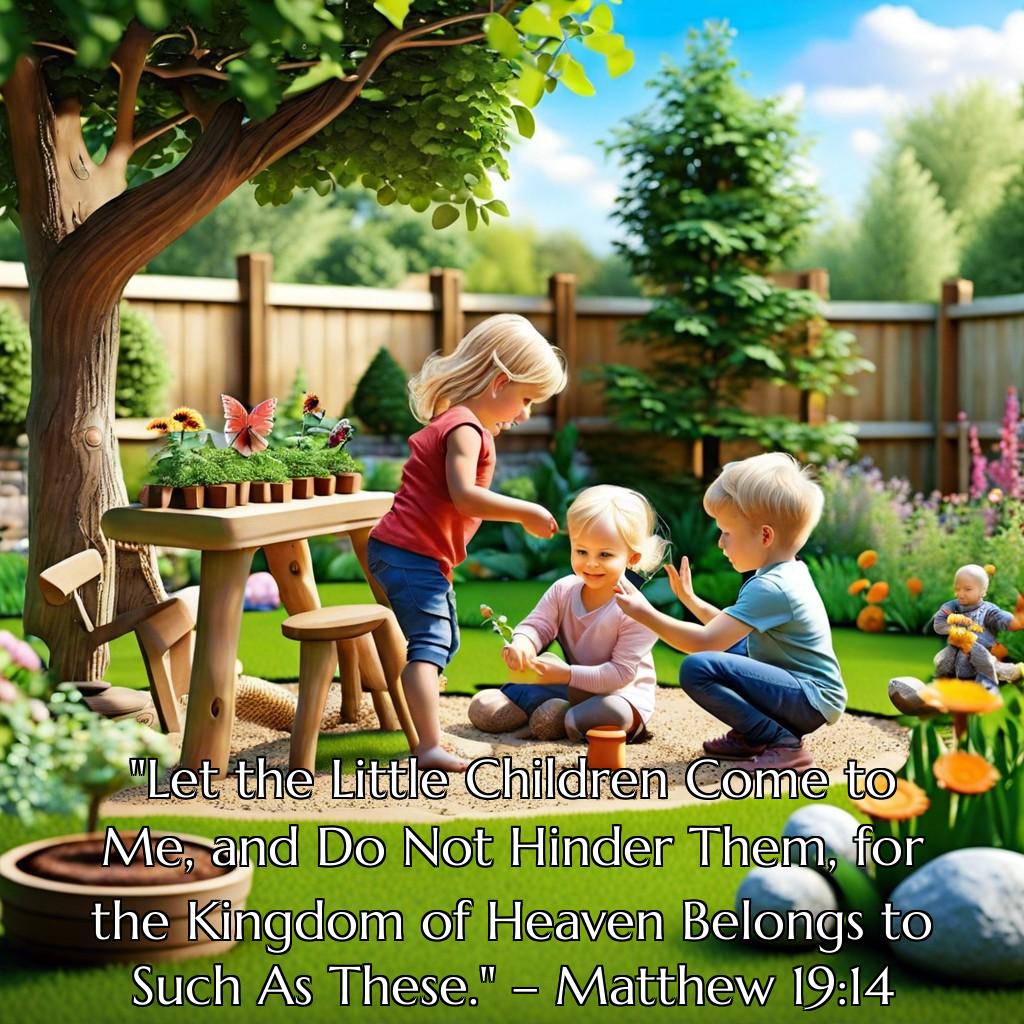Find inspiration and guidance for children through these powerful Bible verses.
Children have a wonderful ability to absorb and learn from the world around them, which makes instilling strong values essential from a young age. Inspirational Bible verses can provide guidance, strength, and wisdom for kids, helping them navigate their formative years. Below, you’ll find a collection of impactful scriptures, each with its meaning explained, to inspire and uplift the young hearts and minds in your life. Dive in and discover the timeless teachings that can shape their character and faith.
“Children, Obey Your Parents in the Lord, for This Is Right.” – Ephesians 6:1

Understanding this verse is key to grasping the importance of respect and obedience in family life. Here’s what it means:
- Obeying parents is seen as a fundamental part of a child’s spiritual journey. It’s about honoring the role parents play in guiding them.
- The phrase “in the Lord” emphasizes that this obedience aligns with God’s will. It’s not just about following rules but doing so as part of one’s faith.
- “For this is right” underlines that this behavior is universally acknowledged as proper and moral. It’s doing the right thing recognized both by God and society.
By internalizing this verse, children grasp the value of listening to their parents, which fosters a harmonious and loving family environment.
“I Can Do All Things Through Christ Who Strengthens Me.” – Philippians 4:13

This verse is a powerful reminder that kids have the strength to overcome challenges with Jesus by their side. It teaches them that they are never alone in their struggles and achievements.
First, it highlights the importance of relying on Jesus for strength. Kids can feel empowered knowing this divine helper is always there for them.
Secondly, it encourages perseverance. Even when tasks seem difficult, they can push through because of the strength given by Christ.
Lastly, it instills a positive mindset. Believing they can do all things through Christ fosters confidence and resilience.
Understanding these points helps children grasp how this verse can inspire them daily.
“Let the Little Children Come to Me, and Do Not Hinder Them, for the Kingdom of Heaven Belongs to Such As These.” – Matthew 19:14

This verse emphasizes the importance of children in God’s eyes. It teaches us that children have an innate purity and innocence that is cherished in the heavenly kingdom.
First, Jesus is welcoming children with open arms, signifying their value and inviting them to experience His love.
Second, it tells us that we should never be a barrier between children and the spiritual growth they seek. Encouraging their faith journey is essential.
Lastly, it assures us that the qualities of children — their humility, trust, and openness — are fundamental in the kingdom of heaven. These traits are not just for kids but serve as a model for all believers.
“The Lord Is My Shepherd; I Shall Not Want.” – Psalm 23:1

Psalm 23:1 speaks to the comfort and provision that God offers. Imagine a shepherd guiding and taking care of his sheep; he ensures they have everything they need. This verse reassures children that God is looking after them with the same care.
Here are some key points:
- God provides for our needs. Just like a shepherd makes sure his sheep have food, water, and safety, God provides what we need in life.
- Trust in God’s guidance. A shepherd leads his sheep to good places. Similarly, God leads us towards good things.
- Feeling secure. Knowing that God is our shepherd can make us feel safe and protected, just as sheep feel safe with their shepherd.
This verse serves as a reminder that with God, we have everything we need and are never alone.
“Even a Child Is Known By His Deeds, Whether What He Does Is Pure and Right.” – Proverbs 20:11

This verse teaches that even children are recognized by their actions, highlighting the importance of pure intentions and right behavior. It emphasizes that character is reflected in deeds, even at a young age.
- Actions speak louder than words. Kids can show kindness by sharing or helping others.
- Integrity matters. Honesty in small things builds trust and respect.
- Doing what’s right isn’t always easy, but it’s essential. Courage in standing up for truth is commendable.
- Pure intentions lead to good actions. Encouraging children to do good for the right reasons nurtures genuine compassion.
These concepts help children understand that their behavior impacts how others see them and teaches the value of living with integrity and kindness from an early age.
“Train Up a Child in the Way He Should Go, and When He Is Old He Will Not Depart From It.” – Proverbs 22:6

Raising children with biblical principles provides them with a solid foundation. This proverb emphasizes the importance of early instruction and consistent guidance. Here are some key concepts:
Start early. Teaching good habits and values from a young age helps instill them deeply.
Be consistent. Regular reinforcement of principles and morals makes them more likely to stick.
Lead by example. Children often imitate adults, so demonstrate the behavior you want to see in them.
Encourage curiosity. Answer their questions about faith and life, fostering a deeper understanding.
Provide a supportive environment. A loving, faith-filled home helps children feel secure and valued.
“Be Kind and Compassionate to One Another, Forgiving Each Other, Just As in Christ God Forgave You.” – Ephesians 4:32

Kindness and compassion are powerful virtues that every child should understand and practice. When we treat others with kindness, we create a happier and more loving environment. Compassion means caring deeply about the feelings and needs of others, which can lead to stronger friendships and better communities.
Forgiveness is equally important. Holding onto anger or resentment can build walls between people. Teaching kids to forgive helps them let go of negative feelings and move forward.
Christ’s forgiveness is a perfect example for kids to follow. Even when we make mistakes, Christ’s forgiveness shows that everyone deserves a second chance. Kids can learn to extend this grace to their friends and family, creating a cycle of love and understanding.
Focus on treating others as Christ would. When kids show kindness, compassion, and forgiveness, they are living out this verse in everyday life.
“I Have No Greater Joy Than to Hear That My Children Walk in Truth.” – 3 John 1:4

Walking in truth means living a life aligned with God’s righteousness. It’s about honesty, integrity, and faithfulness. For kids, this can be as simple as telling the truth, being kind, and showing respect to others.
Parents find immense joy when they see their children making good choices. This joy stems not just from the right behavior but also from knowing their children understand and live by God’s teachings.
Encourage children to be truthful in their words and actions. Teach them that truth builds trust and strong relationships. Remind them that walking in truth brings a sense of peace and fulfillment, as they are living according to God’s will.
“For I Know the Plans I Have for You, Declares the Lord, Plans to Prosper You and Not to Harm You, Plans to Give You Hope and a Future.” – Jeremiah 29:11

This verse reassures kids that their future is in God’s hands. It is a promise of hope and a reminder that God has a plan specifically for them.
First, it teaches children that God has a plan. This can instill confidence and courage, even in uncertain times.
Second, the promise of prosperity means that God wants them to succeed. It’s not just about material wealth but about thriving in all aspects of life.
Third, knowing that God’s intentions are not harmful helps build trust. It reassures them that God always has their best interests at heart.
Lastly, having hope for the future can inspire kids to dream big and work hard. It motivates them to look forward to the blessings and opportunities that God has in store.
“Do to Others As You Would Have Them Do to You.” – Luke 6:31

This verse is often called the Golden Rule. It’s simple yet profound. Teaching kids to treat others the way they want to be treated promotes empathy and kindness.
First, it helps children understand the importance of respect. When they appreciate how their actions affect others, they are more likely to make considerate choices.
Second, it encourages fairness. By thinking about what they would want in a situation, children can better judge what’s fair and just.
Third, it fosters a sense of community. When kids practice this rule, they contribute to a more harmonious environment, whether at home, school, or anywhere else.
Lastly, it lays a foundation for healthy relationships. Mutual respect and kindness are cornerstones of strong, positive interactions.
These lessons are invaluable as they grow, helping them navigate the complexities of the world with compassion and integrity.





